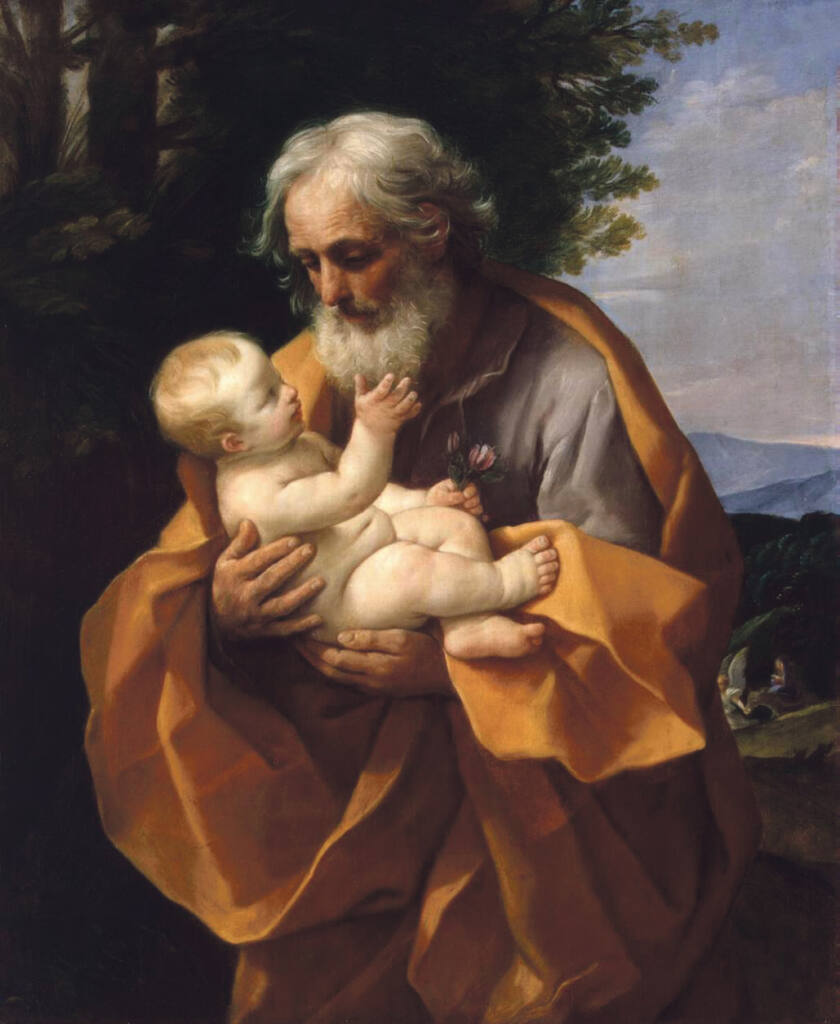He awenga piripono he ngū, he pūaroha – Hāto Hōhepa
Published in WelCom March 2021
Fr James Lyons

St Joseph has been the name of choice for a large number of Catholic schools and parishes in New Zealand, rivalled only by St Patrick.
His popularity came with the European missionaries and pioneer settlers and continued to be reflected in the first, second or confirmation name of countless baptised Christians, male and female.
Traditionally known as the ‘foster father of Jesus’, he is more properly seen as the faithful husband and protector of Mary and the father-figure in the formative years of Jesus.
Pope Francis, following the expression of Pope Paul VI, honours Joseph as ‘a beloved, tender and obedient father’ who made an offering of himself in love.
Standing as he does at ‘the crossroads between the Old and New Testaments’, St Joseph is recognised as a father by Christian people.
Silence
Joseph appears only briefly in the gospel narrative but these are highly significant moments. Not a word of his is recorded but his actions tell us everything. They speak to the day-to-day realities of ordinary people and so make them permanently relevant.
He is troubled over Mary’s pregnancy for he knows he is not the father. But he chooses not to denounce or embarrass Mary and is encouraged by the words, ‘Do not be afraid!’ Strengthened by his faith, he follows his heart, accepting Mary as his wife.
Joseph is obedient to the Imperial requirement that the family be registered even though it means a difficult journey, with Mary about to give birth and no guarantee of their security.
Pope Francis notes that Joseph ‘did not look for shortcuts but confronted reality with open eyes and accepted personal responsibility for it.’
With the child’s life in danger Joseph is forced to leave his home and livelihood and, with Mary and Jesus, to become refugees in another land. Courage and hope stand out as characteristics of this trusted guardian.
The angel of the Lord appeared to him in a dream and said, ‘Joseph, son of David, do not be afraid to take Mary as your wife into your home. For it is through the Holy Spirit that this child has been conceived in her.”
“When Joseph awoke, he did as the angel of the Lord had told him to do and took his wife to his home.”
Matthew 1:20, 24
Hope and trust
Joseph is portrayed as someone who did not have answers or explanations to the issues that confronted him. But neither did he lose hope. He accepted, not blindly or foolishly, but with deep trust. He teaches us, as Pope Francis puts it, that ‘faith gives meaning to every event, however happy or sad.’
At the age of 12, Jesus fails to return to the family group after a visit to Jerusalem. It would take Joseph and Mary three days to find him. Their fear and concern is palpable in Mary’s angry cry, My son! How could you do this to us?
We feel for them at that moment. We know the dangers that await innocence. We know the grief that engulfs parents at every unexplained absence of a child. Here stands Joseph. This strong, faithful protector knows disappointment and the fear of loss. But love prevailed and Jesus returned home with them.
Perhaps this is where the seed for Jesus’ parable of the lost sheep was planted. Looking back he could see Joseph as the shepherd gently guiding the wayward sheep back home.
A father as parent is not born, but made. To quote Pope Francis, ‘A man does not become a father simply by bringing a child into the world, but by taking up the responsibility to care for that child.’ He points to the tragedy of ‘absentee fathers’ and the terrible effects this has on the whole life of the child, indeed the life of the whole family.
St Joseph qualifies as a father more than many, and today’s Dads will find him a sure guide as they meet the privileges of their role as protector, mentor, companion and care-giver.
Joy and sadness
The Joyful Mysteries of the Rosary are incomplete without an awareness of the presence of Joseph. From Mary’s ‘Yes!’ at the Annunciation to the finding of the lost Jesus, Joseph’s influence is huge.
His support for Mary as she reveals her pregnancy, sharing her aloneness in childbirth, his breathless listening to the shocking prediction of Simeon that a sword would pierce Mary’s soul, and the shared agony of realising their child is missing. Joy arises from sorrow and doubt, strengthening both their marriage and their hope.
St Joseph is not only a model for every father, he is an ideal image of the ‘fatherhood’ in our God, spelt out for us by St Paul:
Blessed be the God and Father of our Lord Jesus Christ, a gentle Father and the God of all consolation, who comforts us in all our sorrows, so that we can offer others the consolation that we have received from God ourselves. (2 Cor.1:3-4)
The post Silent, faithful, compassionate presence – Saint Joseph – first appeared on Archdiocese of Wellington.
Celebrating Migrants as Missionaries of Hope
Pastoral
Published on 16th Jun, 2025
June 22 is the Day of Prayer for Refugees and Migrants [..]
Monsignor Brian Walsh’s 50 Years of Priesthood
Pastoral
Published on 23rd May, 2025
Mons Brian celebrated his 50th anniversary on Sunday 18 May [..]
Palmerston North to host parish renewal event
Pastoral
Published on 22nd May, 2025
The Hope and Renewal Summit will be hosted by Palmerston North this October [..]
Meeting with Pope Leo XIV: A new hope for Eastern Churches
Pastoral
Published on 20th May, 2025
Pope Leo XIV received representatives from the Eastern Catholic Churches in an audience [..]
PEACE WITH CREATION
Pastoral
Published on 12th May, 2025
Celebrating the 10th Anniversary of Laudato Si’: Planting Seeds of Hope and Peace [..]
